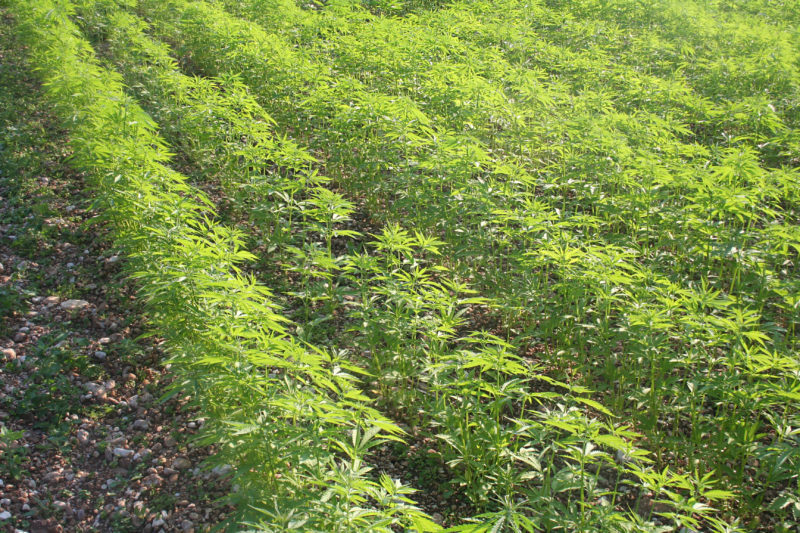Dr. Gottlieb opened the op-ed by noting that CBD is everywhere, and that the market could surpass $20 billion by 2024—but that CBD is, still, illegal: “When Congress passed [the Farm Bill], it established a category of cannabis from hemp defined by extremely low concentrations of THC. But in doing so, Congress explicitly preserved the FDA’s authority to regulate CBD-containing products to make sure they’re safe and that their claims are valid.”
Dr. Gottlieb added his concerns about CBD: “It can cause damage to the liver at high doses, and it may have a cumulative effect. Currently marketed products might also have undeclared ingredients and impurities, including the psychoactive compound found in marijuana, delta-9-tetrahydrocannabinol.” Therefore, Dr. Gottlieb wrote, any pathway for CBD to enter the food or supplement market “needs to preserve the incentive to study the compound in rigorous clinical trials to prove its therapeutic potential as a medicine. It’s not appropriate or legal to make such claims otherwise.”
Related: FDA Cannabis/CBD Public Hearing: “FDA Does Not Have the Luxury Of Time” Congress Urges FDA To Move Forward With CBD Legalization CBD At the Dietary Supplements Regulatory Summit: FDA “Has No Policy of Enforcement Discretion”
Dr. Gottlieb wrote that FDA, technically, has to issue a regulation allowing the use of CBD—a multiyear process subject to notice and comment, requiring a “substantial amount of scientific data” that FDA must evaluate. However, he noted, “Responsible food makers waiting for regulators to address the legal and safety considerations before launching CBD products are being eclipsed by unscrupulous purveyors.”The pathway Dr. Gottlieb suggests: “Approve the sale of some CBD products immediately, while effecting a framework for their safe and proper regulation and a pathway for an enforceable market for these goods.” Put the onus on manufacturers to demonstrate that CBD can be safely added to food products, Dr. Gottlieb says. New dietary ingredient notifications or food additive petitions, both of which would include toxicity studies, would hold CBD to the same standards as any other ingredient. And in the meantime, “FDA could exercise enforcement discretion to allow CBD to be marketed in food so long as the products meet certain conditions… good manufacturing requirements, traceability, safe levels for the purity and potency of the CBD.” And, of course, products would not be allowed to make any claims to treat disease.
Related: NPA Submits Comments to FDA on NDIs and CBD Phytocannabinoids: 25 Things to Know Now
Frank Lampe, VP of communications & industry relations at United Natural Products Alliance (UNPA), toldWholeFoodsthat Dr. Gottlieb’s solutions make it look more and more likely that FDA will rely on NDIs for the dietary supplements industry and GRAS applications for the food industry—which, given the Industry’s relationship to NDIs, could be a “game-changer.” “The NDI portion of DSHEA was never finalized,” Lampe said. “The guidance document FDA released has never seen any action or movement.” And, he notes, there’s a history in the Industry of people failing to submit NDIs, and of a lack of enforcement on FDA’s side. “If FDA utilizes NDIs and are going to be strict about that, every single ingredient supplier would need to supply an NDI, along with enough safety data to satisfy FDA.”On the food side, Lampe says, things get a little harder. “If CBD is showing up in everything from chips to ice cream, how do people self-regulate? It’s hard to accidentally overdose on dietary supplements, but it’s a different story with food. And the safety data showing liver toxicity will be putting up red flags for FDA.”
Lampe is looking forward to the future, though. “There’s around 50 studies taking place in Canada right now, because cannabis has been legal there for a little while now. We’re all waiting to see what they find.”
Steve Mister, president and CEO of the Council for Responsible Nutrition (CRN), brings another viewpoint to the table. “We certainly agree with Dr. Gottlieb’s urgency,” he toldWholeFoods, “but we disagree with him calling on Congress to take FDA off the hook.” He notes that the portion of DSHEA that FDA keeps citing, which states that an ingredient first studied as a drug cannot be a dietary supplement, ends with: “…unless the Secretary, in the Secretary’s discretion, has issued a regulation, after notice and comment, finding that the article would be lawful under this Act.” Mister explains, “This means FDA has the authority to make cannabidiol a supplement under DSHEA, even though it’s already been studied as a drug."
Mister adds, “FDA doesn’t have to sacrifice safety, but they don’t need to have all the answers right off the bat, which is what they’re trying to do. The first question is one of economics: Should it be sold both as a drug and a supplement? We’ve got this compound that can affect the endocannabinoid system in so many different ways, it could be sold as both—selling it as a supplement, in low doses, for relaxation, does not impede drug companies’ incentives to study it for cancer, or epilepsy, or other diseases.”
And in the meantime, Mister said, FDA is putting consumers at risk. “Right now, if you were to compile safety data on CBD and send it to FDA as an NDI, it would be sent right back. It can’t be a new dietary ingredient. So what’s the incentive to invest in clinicals at all? What’s the carrot? If companies can invest in clinical trials, send in an NDI, and get a product out of it, that’s an incentive to do the research. But right now, that incentive isn’t there. The risk of doing nothing is continued lack of regulation, and we’re worried that consumers could get hurt.”










